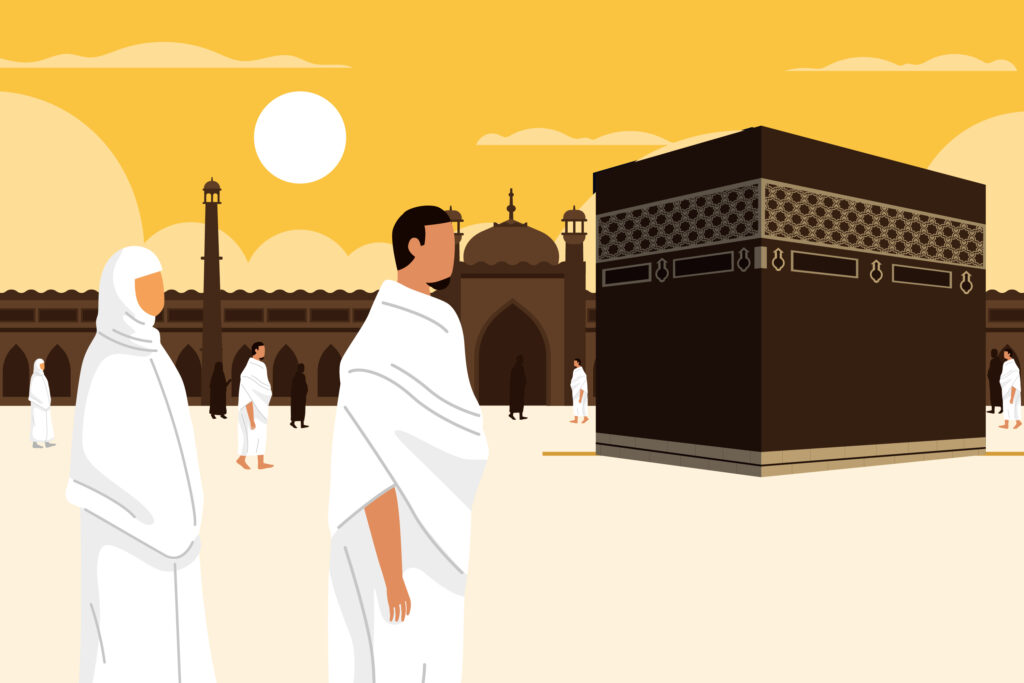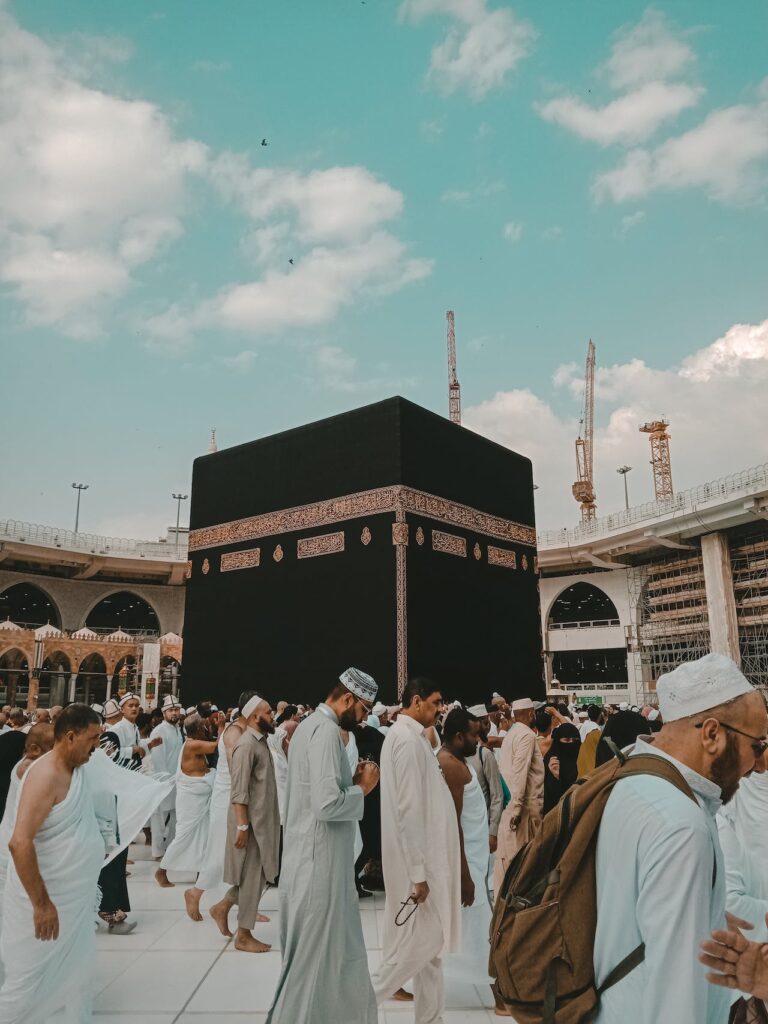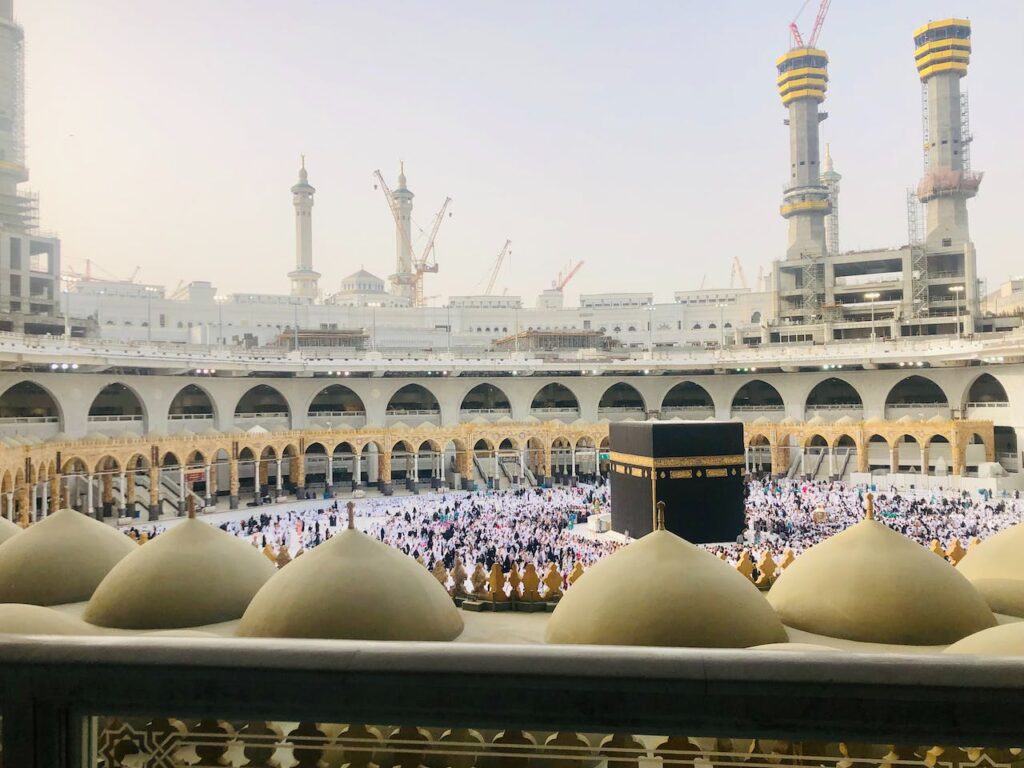Welcome to our comprehensive guide on the rituals of Umrah, specifically focusing on the significance of the two Rakats after Tawaf.
What Are The Two Rakats After Tawaf?
After completing Tawaf, it is recommended to perform two Rakats of prayer, While they are not obligatory, they hold great significance in the overall Umrah experience.
After concluding the Tawaf, pilgrims should find a spot in the Grand Mosque to offer their prayers.
It is preferable to perform the prayer near the Maqam Ibrahim, which is the spot where Prophet Ibrahim (pbuh) stood while constructing the Kaaba.
The Process of Two Rakats After Tawaf
Before beginning the prayer, it is recommended to make the intention for the Sunnah prayer of Tawaf.
The prayer consists of two Rakats, just like any other regular prayer. However, there are some specific actions that are performed differently in these two Rakats.
Firstly, For the first Rakat, after the Takbir (saying Allahu Akbar), recite Surah Al-Fatihah and an additional Surah.
Following the recitation, perform the Ruku (bowing) and Sujood (prostration) as usual.
After rising from the first Sujood, stand up to begin the second Rakat.
Secondly, In the second Rakat, recite Surah Al-Fatihah and another Surah after the Takbir. Then, perform the Ruku and Sujood.
After completing the second Sujood, sit for the Tashahhud (a specific supplication) and conclude the prayer with the Salam (saying Assalamu Alaikum to the right and left).
It is important to note that there are no specific Dua or supplications that need to be recited after the prayer.
However, this is an excellent opportunity to make personal supplications and seek blessings from Allah.
The Meaning of Two Rakats After Tawaf
The two Rakats performed after Tawaf hold deep symbolism and significance in the spiritual journey of Umrah.
These two Rakats represent a moment of reflection and gratitude for the opportunity to perform Tawaf and seek closeness to Allah.
By offering these two Rakats, you are acknowledging the blessings and guidance bestowed upon you throughout the Tawaf.
It is a moment to express your gratitude and devotion to Allah, thanking Him for the strength and opportunity to complete this sacred ritual.
Moreover, these two Rakats serve as a means of seeking forgiveness and purification. After completing the physically demanding act of Tawaf,
the prayer allows you to cleanse your heart and soul, seeking forgiveness for any shortcomings or mistakes made during the ritual.
In Addition, the two Rakats after Tawaf serve as a reminder of the importance of prayer in Islam.
Prayer is a fundamental pillar of the faith, and by performing these two Rakats,
you are reinforcing the significance of prayer in your spiritual journey.
Furthermore, the act of prayer after Tawaf helps to maintain a state of humility and focus on the purpose of Umrah.
What is The Importance of Two Rakats After Tawaf?
The two Rakats performed after Tawaf hold immense importance in the overall Umrah experience.
While these two Rakats are not obligatory, they are highly recommended and offer numerous benefits for the pilgrim.
Firstly and foremost, performing the two Rakats after Tawaf is a way to follow the Sunnah of the Prophet Muhammad (pbuh).
The Prophet himself would consistently perform these two Rakats after completing Tawaf, setting an example for all Muslims to follow.
By adhering to the Sunnah, you are not only emulating the actions of the Prophet (pbuh) but also seeking his intercession and blessings.
It is a way to connect with the spiritual traditions of Islam and gain closeness to Allah.
Secondly, the two Rakats after Tawaf serve as a moment of reflection and gratitude.
They allow you to pause and express your appreciation to Allah for the opportunity to perform Umrah and complete the sacred act of Tawaf.
These two Rakats provide a chance to seek forgiveness for any shortcomings or mistakes made during the Tawaf. They serve as a means of purification and repentance, enabling you to start your spiritual journey on a clean slate.
Dua After Completing Two Rakats After Tawaf
After completing the two Rakats, it is recommended to recite a Dua to seek blessings and guidance from Allah. While there is no specific Dua mentioned in the Hadith or Sunnah,
this is an excellent opportunity to make personal supplications and pour out your heart to Allah.
When reciting the Dua, it is important to do so with sincerity and humility.
Choose words that reflect your innermost desires and concerns,
and seek Allah’s forgiveness, guidance, and blessings for yourself, your loved ones, and the entire Muslim Ummah.
Here are some general themes and areas you may consider including in your personal Dua after completing the two Rakats:
- Expressing gratitude for the opportunity to perform Umrah and complete Tawaf.
- Seeking forgiveness for any shortcomings or mistakes made during the Tawaf.
- Asking for guidance and blessings in your personal and spiritual life.
- Praying for your loved ones, their well-being, and guidance.
- Seeking forgiveness for sins and shortcomings.
- Praying for the unity and well-being of the entire Muslim Ummah.
- Asking for protection from evil and guidance to the straight path.
- Seeking blessings, mercy, and forgiveness from Allah.
Key Takeaways
- Umrah is a spiritual journey undertaken by Muslims, allowing them to seek forgiveness, express gratitude, and strengthen their relationship with Allah.
- The 2 Rakats after Tawaf are a Sunnah prayer and hold great significance in the overall Umrah experience.
- Performing the two 2 after Tawaf involves finding a spot in the Grand Mosque, reciting specific prayers, and following the actions of the Prophet Muhammad (pbuh).
- The two 2 after Tawaf serve as a moment of reflection, gratitude, and seeking forgiveness.
- There are no specific Duas mentioned in the Hadith or Sunnah, but you can make personal supplications in Arabic or your native language.
- Make the most of this sacred moment and seize the opportunity to connect with Allah and seek His blessings.
Conclusion
In conclusion, by performing the two Rakats after Tawaf, you are not only following the Sunnah but also expressing your gratitude and devotion to Allah.
It is a moment of reflection and connection with the Divine, allowing you to seek blessings and guidance for your spiritual journey.






